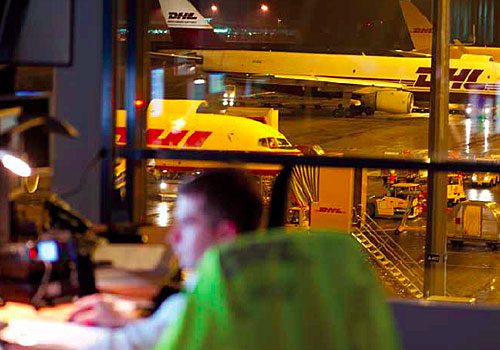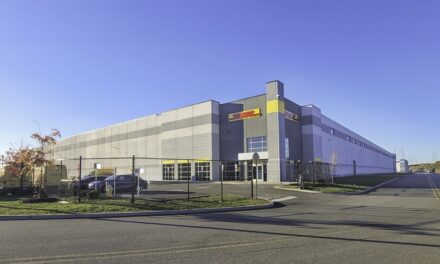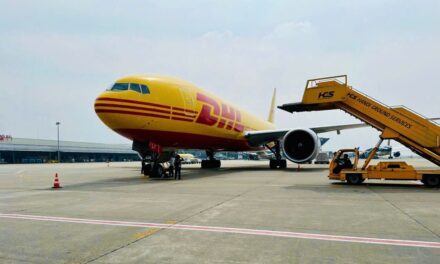
DHL Express in Europe
With rivals UPS and FedEx both pursuing the European express market at the moment, DHL Express is not intending to sit back and give up market share, writes James Cartledge.

“It’s no secret that we did underperform for a number of years, but we are now undeniably performing to expectations,” says John Pearson, the DHL Express CEO Europe, bookending a period in his company’s history that has seen it withdrawing from most of its major domestic markets to focus on international time definite shipments.
Six years of failing to make its acquisition of Airborne Express work saw withdrawal from the US domestic market in 2009, and over the past few years DHL has also pulled out of most of its other major domestic markets, including China, the UK, France and Canada.
Pearson says that DHL Express is now focused on its core competency of time definite international services. The new strategy is already working, he believes, with the company growing its market share in many of its regions, even presenting itself as the “stable” choice for customers concerned about the uncertainty involved in the attempt by rival integrator UPS to buy TNT Express.
“Over our forty years, Express has been one company but we’ve tried many things. The storyline for now is that we are focused on time definite international – we have got out of a number of domestic markets, and we’re now on track.”
Since DHL’s origins in 1969, the brand’s express wing has evolved from a document shipping company that also delivered packages into a package shipping company that also delivers documents. Last year DHL Express generated EUR 11.7bn in revenues, making close to a billion Euros in earnings before tax. It is now contributing almost 50% of the group result, and the
majority of the earnings for the DHL brand as a whole.
Customer service as priority
Pearson says that DHL Express prioritises customer service as driven by around 100,000 motivated employees, with the network achieving a 97% on time performance as of September 2012.
At the heart of this focus is a massive training programme called Certified International Specialists, where all employees have training to build business understanding and international expertise. As well as improving the knowledge base of staff, the programme also helps to keep them motivated.
Having staff that are engaged, knowledgable, and motivated – and with all countries having their own local customer service centres – are key strengths, Pearson believes. “We are equal on a lot of things with our competitors – infrastructure, technology and what have you. But we absolutely can say our phones get answered in ten minutes. We are an insanely customer centric organisation.”
Competition
In the EUR 22bn global time definite international market, DHL currently believes it has a 32% share of the market compared to 27% for FedEx, 21% for UPS and TNT Express’ 7%.
In Europe, DHL says its 59m annual time definite international shipments gave it a 41% share of the market last year, growing 2% year on year, with UPS and FedEx finding their market shares “flat” on 23% and 10% respectively, and TNT Express with a declining market share of about 14%.
Naturally DHL Express is keeping a close eye on what is happening with its rivals. The European Commission is currently examining UPS’ proposed EUR 5.16bn acquisition of TNT Express, after expressing clear concerns about the deal’s impact on the shape of the European express market and its competition levels.
Pearson believes that it is evident that the Commission is concerned about the impact on trade, and on small businesses in particular, and he notes that the EU officials “will look very carefully at it”.
For its part, DHL Express is “a little ambivalent about it, really”, he says.
“If there is one less competitor in the market, then history and experience suggests that prices may drift up. But we will be concentrating on providing the best possible service – that’s the focus. We’re not going to be distracted by this, right now we are head down, focusing on peak season.”












